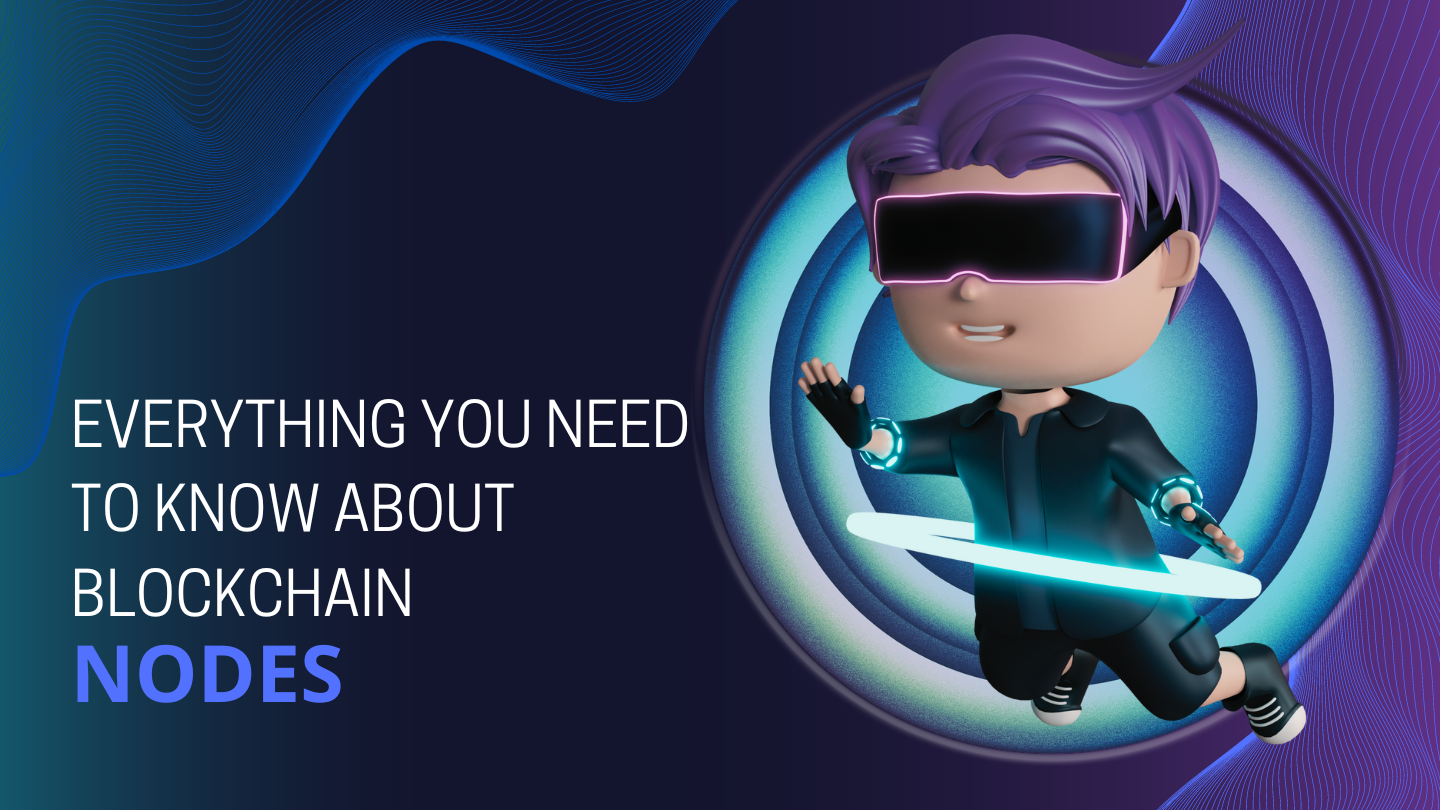Everything You Need To Know About Blockchain Nodes

For those new to the world of blockchain, the concept of a node may be confusing. A blockchain node is a computer that helps to maintain a blockchain network by validating and relaying transactions. Nodes are essential to a blockchain network as they help keep it secure and decentralized. But what exactly does a node do? And how do they work?
We will explore everything you need to know about blockchain nodes, from their role in the network to how they are used to validate transactions.
What is a node?
A node is a computer linked to the blockchain network that helps verify transactions. Nodes are what keep the blockchain secure and running smoothly. Without nodes, there would be no blockchain. Every node on the network must verify each new block added to the chain, making it nearly impossible for falsified information to pass through.
Nodes are data storage for each transaction in a blockchain system and ensure that every transaction is secure and accurate, thus creating trust across all parties using the system.
What are blockchain nodes?
A blockchain node is a computer that participates in the operation of a blockchain network. Nodes can validate transactions, add them to the blockchain, and propagate transactions across the web. A transaction must be validated by at least one node before adding it to the blockchain.
The types of nodes in a blockchain network
1. Full Nodes
A full node is a program that verifies blockchain transactions. When someone makes a transaction, it is broadcasted to all the nodes in the network. Each node then verifies the transaction independently to ensure it is valid. Once enough nodes have verified a transaction, it becomes "confirmed" and is added to the blockchain.
2. Mining Nodes
Mining nodes are full nodes that also mine new blocks of cryptocurrency transactions. They are rewarded with cryptocurrency for their work verifying and confirming transactions. The more mining power a node has, the greater its chances of being chosen to mine a new block and receive the reward.
3. Lightweight (or SPV) Nodes
Lightweight or SPV nodes do not store the entire blockchain as full nodes do. Instead, they only download the blocks that contain transactions relevant to them. This makes lightweight nodes much faster and more scalable than full nodes but less secure since they have to trust other nodes to give them accurate information about the blockchain.
The benefits of running a node
There are several benefits to running a blockchain node. For starters, Nodes contribute to network security by validating transactions and blocks. Furthermore, they are essential in ensuring the network's decentralization by providing a distributed ledger that all users can use. Additionally, nodes can earn rewards for their participation through transaction fees and block rewards. Finally, running a node helps promote blockchain technology's use and adoption.
The benefits of having a node depend on the node type and its position within the network. For example, relay nodes forward information and do not need to store or process any data. This makes them highly efficient and scalable. On the other hand, full nodes keep a complete copy of the blockchain and must validate every transaction. This gives them an essential role in ensuring the security and integrity of the network but comes at the cost of reduced scalability.
When deciding whether to run a node, numerous aspects exist. However, one crucial consideration is the cost. Running a complete node might be costly, especially if you require continuous uptime.
The challenges of running a node
Blockchain nodes are often run by volunteers who are passionate about the project they are supporting. However, running a node can be challenging and requires specific technical expertise. Below are some of the challenges that node runners may face:
- Bandwidth and storage requirements: Nodes must have enough bandwidth and storage to handle the blockchain's growth. As the blockchain grows, so does the number of transactions that need to be processed and stored.
- Synchronization issues: Nodes need to stay synchronized with the rest of the network to validate transactions and blocks. If a node falls behind, it may miss out on important information or be unable to process transactions on time.
- Security concerns: Running a node exposes the operator to potential security risks. Hackers could target a node to steal funds or disrupt the network.
- Maintenance: Nodes must be regularly maintained to keep them running smoothly. This can be a time-consuming task, especially for large networks.
Why do I need a blockchain node provider?
There are many different types of nodes on a blockchain network, each with its unique function. These nodes must be constantly online and working correctly to keep the network running smoothly. This is where node providers come in.
Node providers maintain the hardware and software powering the blockchain network nodes. This means that they will be able to monitor your nodes, ensure they are running correctly and provide you with security updates so that they can be updated automatically. They also ensure that the nodes are always online and can process transactions.
Chainnodes is one of the leading node providers in the industry. We offer affordable and reliable solutions for those looking to run their nodes or participate in a blockchain network. We provide Nodes for Ethereum, Polygon, and Optimism.
We are committed to building a community around our product and strive to be transparent with all our users. This way, we can ensure that everyone in the space knows what's happening.
Our goal is to build a strong community by providing education on blockchain technology and how it can be used in real-life applications.
Conclusion
Nodes are an essential part of any blockchain network, as they help to validate and propagate transactions throughout the network. To set up your node, choose a reliable and affordable provider like chainnodes.org, you can rest assured that your node will be up and running smoothly.